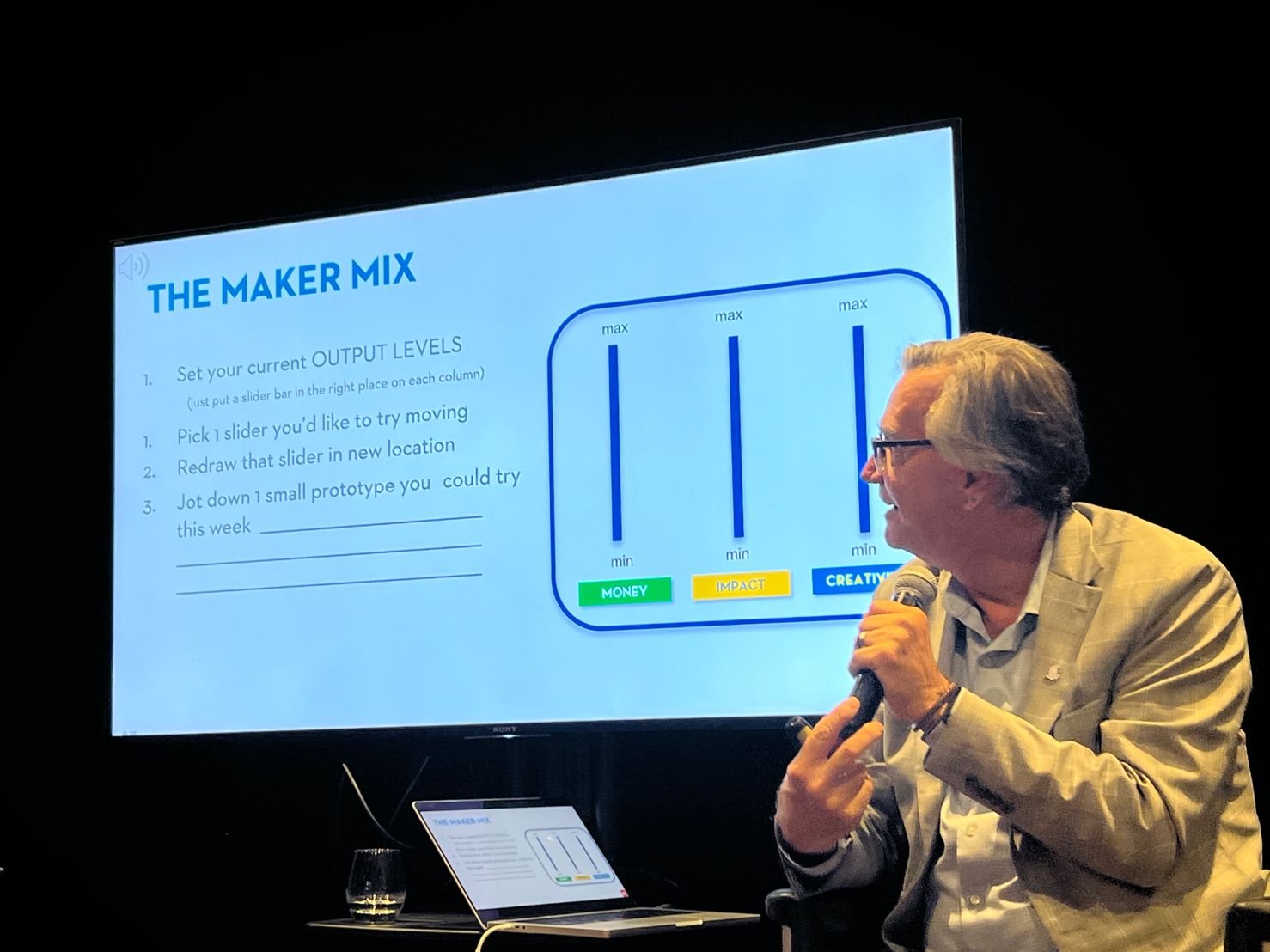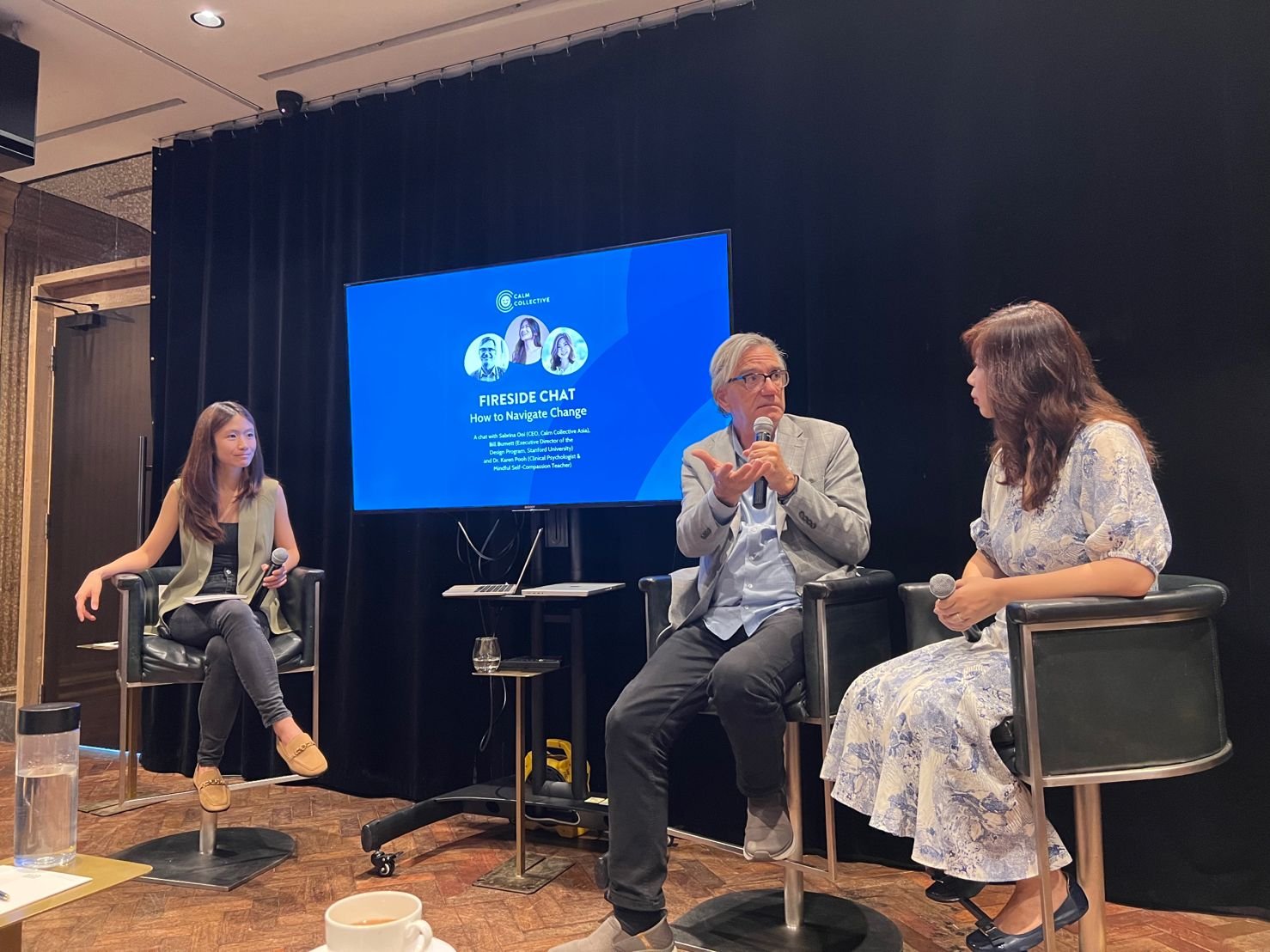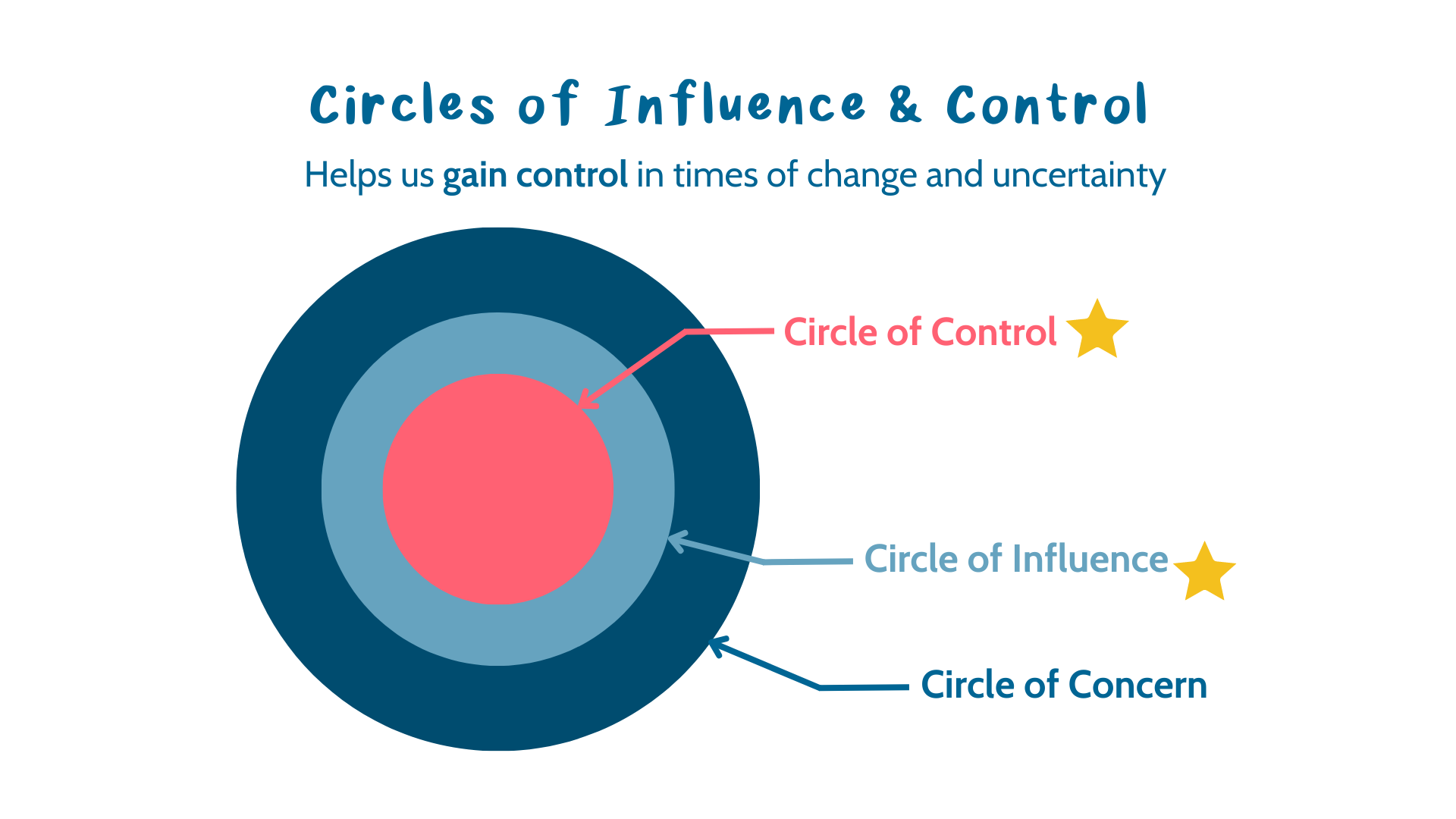Wellbeing Leaders Roundtable: Re-designing Our Work Life in the Face of Change
While the pandemic may be in the past, we still find ourselves confronting major upheavals in the present. From the emergence of artificial intelligence systems to the impending climate crisis, the pace of change seems relentless.
People crave certainty. However, the relentless onslaught of change makes it increasingly challenging to cling to the status quo. Consequently, it has become crucial for both individuals and organisations to learn to adapt. But the question remains: how?
To shed light on this question, Calm Collective hosted our first in-person Wellbeing Leaders Roundtable of 2023, featuring Bill Burnett (Director of the Life Design Lab at Stanford University) and Dr Karen Pooh (Clinical Psychologist & Mindful Self-compassion teacher) as our guest speakers.
What happened at the Roundtable?
Held in-person at 1880 Singapore, we welcomed 20+ wellbeing leaders from around the APAC region. Our third Roundtable of 2023 was co-hosted by Sabrina Ooi (CEO, Calm Collective) and Marlene Ditzig (Workplace Wellbeing Consultant, Calm Collective).
We kicked off the Roundtable with a firechat chat with Sabrina Ooi, Bill Burnett and Dr. Karen Pooh, where we explored the topic of navigating change. Subsequently, we delved into a workshop conducted by Sabrina, on Finding Calm Amidst Change. We ended the session with an exclusive ‘Designing Your Work Life’ introductory workshop on thriving through change with Bill.



What We Learnt: Navigating Change
1. Cultivating A Designer’s Mindset
How can we maintain a positive outlook on the future amidst disruptive changes? Bill’s approach is to adopt a design thinking mindset, and he shared the following:
Begin with curiosity. By being curious about change, we can break down our rigidness to change.
Bias to action. Approach change as an iterative learning process – this involves actively experimenting and building small-scale prototypes to lower the risks of change.
Engage in radical collaboration. By engaging in collaboration, we expand our horizons and can navigate the complexities of change together.
2. Overcome the Bias to Change with Empathy & Compassion
Dr. Karen encouraged us to acknowledge the discomfort that change brings. When change feels overwhelming, we often hinder ourselves further with self-criticism. By redirecting focus through self-compassion and mindfulness, we allow ourselves to stay open and curious while breaking the internal barriers to change.
Above all, courage is key: take action despite fear. Fear won’t vanish overnight, but by taking small steps to gradually stretch our comfort zones, we can lower the fear threshold.
3. Embrace Organisational Change with Adaptive Leadership
Change not only impacts individuals but also organisations. How can organisations effectively cope with change?
The first step is acknowledging and accepting that change is happening. Side-stepping and denying the reality of change only hinders progress and limits opportunities. Strong leadership plays a pivotal role in navigating change successfully. Leaders who understand the importance of unlocking the potential of every individual within the organisation can steer the ship towards a brighter future.
What We Learnt: Finding Calm Amidst Change
Maintaining a sense of calm amid change may feel like an elusive endeavour. But it’s not impossible, and Sabrina shared how we can do so.
1. Get Aware of How You’re Feeling
Take a moment to pause and check in with yourself. During our Roundtable, we asked our leaders a simple yet profound question: “How are you feeling today?”.
By taking time to name and acknowledge our emotions, we gain clarity and insights into our internal state. This then paves the way for a more intentional approach to navigating change.
2. Control the Controllable
The concept of Circles of Control & Influence offers us a framework to understand what we can control and where we can exert influence, empowering us to regain a sense of control and autonomy. Even amidst the most disruptive changes, it is important to remember that we have more power than we may initially realise.
What We Learnt: Thriving Through Change
Beneath the surface of the emerging trend of ‘quiet quitting’ lies a troubling reality – widespread employee disengagement.
Why? People are stuck at work – they are burnt out, have no opportunities for growth, or are under toxic leadership. So, how can we rediscover meaning in our work?
1. Don’t Resign – Re-design!
Rather than simply quit, apply the practices of design thinking to give yourself a better job with the following strategies:
Reframe & re-enlist. Rather than focus on what’s unsolvable, focus on what you can do (using the Circles of Control & Influence!). This can help us regain a sense of control and agency when it may feel like we have none.
Remodel. Using a combination of cosmetic and structural changes, realign your job with your values while using your strengths to your advantage.
Relocate. Move into a new role that aligns with your strengths and interests that are within your reach.
OR
Re-invent. Launch a whole new career!
2. Find Your Story.
Growing up, various versions of ‘the-way-things-are’ narratives have been imparted to us by our environment, experience and education.
In Alan Watts’ short film, ‘Life and Music’, it becomes evident that these narratives belong to the ‘default story’. Your story is something you create for yourself. Bill emphasised the significance of self-awareness – how can you lead others if you haven’t taken charge of your own path? Without self-awareness, one remains stuck in the default story.
3. Don’t Get Stuck in False Dichotomies
The notion of choosing between money and meaning presents a false dichotomy. While the concept of doing both simultaneously might be hard to wrap our heads around, it’s not impossible.
Money, impact and creativity serve as three distinct metrics to gauge what we make at work and in our lives. It is then our responsibility to design our ideal mix of the three and explore avenues beyond work to actualise our vision.
Our question for you: How will you redesign your work life?
Calm Collective Asia helps organisations normalise mental health conversations at work through our consultancy services, programmes, and training. Learn more about our corporate offerings for workplace wellbeing here.
If you would like to attend Calm Collective’s future Wellbeing Leaders Roundtables, you may indicate your interest here.


